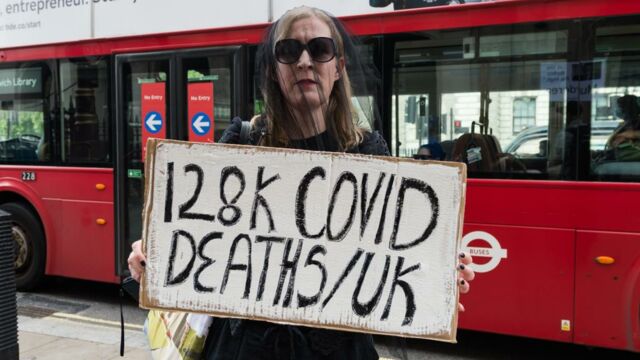The UK’s Health Secretary Matt Hancock spent four hours today being questioned by MPs over his handling of the pandemic. During his meeting, Hancock revealed that the Delta variant - the coronavirus variant first identified in India - now accounts for 91% of the country’s COVID cases.
Discover our latest podcast
Hancock claimed the new figure came from an assessment he reviewed the night prior.
Matt Hancock suffers questioning on pandemic handling
Comments on the increasing cases come just one week after Public Health England warned the Delta variant might also present a ‘significantly increased risk of hospitalisation’ compared to the Alpha strain, which was initially discovered in Kent. Hancock also told parliament earlier this week that he believes the Delta variant could be up to 40% more transmissible than the B 1.1.7 variant.
During the questioning on his pandemic strategy Hancock also suggested that lockdowns and social distancing wouldn’t be ruled out if a new coronavirus variant developed that was resistant to vaccines:
The plan is predicated on having a variant vaccine as fast as possible. The Prime Minister has set a target of having a variant vaccine and treatment and diagnostics within 100 days but we’re not there yet at that speed. In the meantime, the tools we have at our disposal are the tools that are available.
While the technology is still progressing, Hancock is still confident that new vaccines will still be developed at a faster rate than before.
Still, current coronavirus vaccines have been proven to be effective against the Delta variant, with over 60% of the population being at least partially vaccinated. A further 22% of UK residents are also fully protected from the virus. This week, the coronavirus vaccine rollout has extended invitations to those from 25-29, sparking a record number of over one million vaccination bookings within 24 hours.
The increase in Delta variant cases has also sparked concern that the June 21st ‘freedom day’ will be delayed. Prime Minister Boris Johnson will reveal plans on Monday, detailing the UK’s next steps out of the pandemic. When questioned on Wednesday about the potential delays to freedom day, Johnson didn’t sound confident but assured that the decision would come down to vaccination rates:
What everyone can see very clearly is that cases are going up and in some cases hospitalisations are going up. I think what we need to assess is the extent to which the vaccine rollout, which has been phenomenal, has built up enough protection in the population in order for us to go ahead to the next stage.
He continued: ‘And so that’s what we’ll be looking at. And there are arguments being made one way or the other, but that will be driven by the data. We’ll be looking at that, and we’ll be setting it out on Monday.’
Cases of the Delta variant are still on the rise
The number of coronavirus cases reported across the UK has reached its highest since the end of February, with cases jumping by 7,540 in the space of just 24 hours.
New figures bring the new total to 4,535,754 coronavirus cases since the start of the pandemic.
Latest government figures show a further eight people have also passed away within 28 days of catching the virus, bringing the UK’s coronavirus death toll to 127,860.















